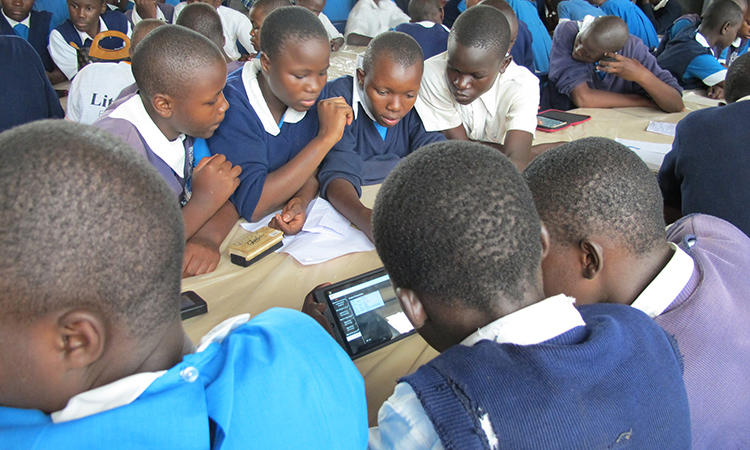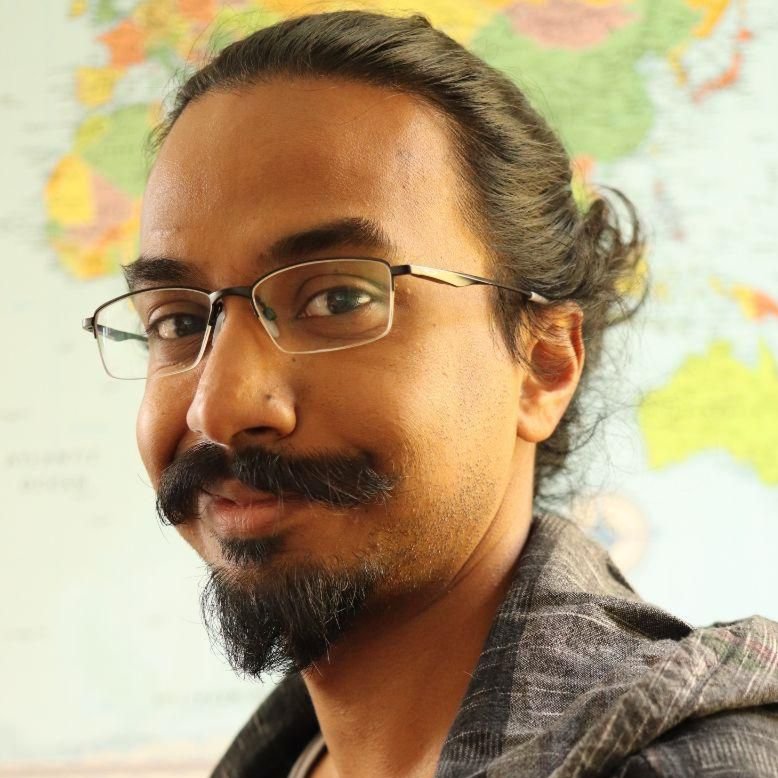No child in the Nairobi slum of Kibera, home to an estimated 250,000 people, had ever achieved admission into Kenya’s competitive national secondary schools. That is, until a library got involved.
In 2012, the Kibera Community Library, a partnership between the national library service and two nonprofits, loaded up tablet computers with educational content and handed them out to 120 kids. Many of the children had never used computers before, but it didn’t take them long to engage with the videos, animations, games, and quizzes that were built to help improve their knowledge of science, math, and English. After their tablet-based training, almost 30 percent of the kids were admitted to national schools.
That’s just one example of how libraries can help achieve the United Nations’ Sustainable Development Goals (SDGs), which offer a 17-point framework for thinking about how to improve quality of life and environmental preservation around the world. The Kibera library project achieved progress on multiple SDGs: eradicating poverty; providing quality education; addressing industry, innovation and infrastructure needs; reducing inequality; and building sustainable cities and communities.
To tell the story of how Kibera and other libraries around the world are engaging with the SDGs, the International Federation of Library Associations and Institutions (IFLA) created the Library Map of the World. The online tool shows country-level data on library volunteers, registered users, libraries with internet access, and other usage and accessibility details. It also points users to stories about how libraries in a variety of countries are addressing the SDGs.
We spoke with Kristine Paberza, IFLA Member Engagement Officer about the purpose and future plans for this online resource. Below is an edited version of our conversation.
Can you tell me a little about IFLA and the Library Map of the World?
IFLA is the global voice of libraries. We develop the professional agenda for libraries around the world, issue standards that help improve library services and, in general, improve access to information. We advocate on behalf of libraries to influence not only global policies — like in the case of the United Nations — but also on the national and regional level.
The Library Map of the World is a young project. It started because we couldn’t tell how many libraries we represent [due to] nonexistent or poor statistics.
So we decided to collect basic country-level statistics [and] launched the site in August 2017. It started with data but it grew broader than that. We want to demonstrate the contribution libraries are making in different areas of sustainable development to policymakers.
We [also] provide space for every country to upload important information about the library landscape in their country. This is connected to other development statistics [like] literacy levels, infrastructure, how much would one pay for internet access.
What do you hope to achieve with stakeholders and policymakers?
The end goal is to increase funding for libraries, but generally it’s to improve the lives of people. All the SDGs [provide] is a framework from which we can tell what libraries do.
SDG number 16-10 is specifically about access to information. [Subset 10 of SDG 16 — which is focused on promoting peace, justice, and access to strong, accountable institutions — calls for ensuring public access to information.] Access to information is included in other targets across the SDGs — it talks about how important it is to have access to information, to understand it, to have skills, to use that information.
Is there any way for readers to submit a story?
We work with everyone, so someone does not need to be an IFLA member to submit a story. On the stories page, there is a link which will allow you to submit a story.
We want to learn about activities, projects, and programs that libraries implement themselves, but there are many organizations that choose to do their activities in libraries and use the libraries as [a] platform. So we also have places where NGOs (non-governmental organizations) reach out to us and tell their stories about how they work together with libraries.
There must be some explanation of where it takes place, what is the community about, what are the challenges that people face, so that we can decide why the library decided to work with this specific group and how it is actually helping.
We want to have evidence-based stories. We want to have the ability to demonstrate the real impact, and evaluation and measurement is still a big challenge in many libraries. Sometimes we have wonderful programs but these are not evaluated, the feedback is not collected, and so it’s hard to make this compelling case about “What is that good that we actually made?”
Let’s say there are many stories and someone wants to try starting a program — could they look at what was tried in other places and see what worked?
A mid-term goal would be to demonstrate the scale. Let’s say I go online and I select SDG #4 Quality Education and I can see different examples [of] how libraries are working on that. In the longer term, I can look into other ways of how we can analyze this and how we can make these correlations of what is actually happening in the country, what is happening in the library field.
What challenges do you face, and what are your longer term goals for the map?
We want to be an authoritative source for what is happening in libraries globally, but for the stories specifically, we see this as an advocacy tool. Those who have the stories to tell can actually help others who are still struggling to have such advanced programs in their libraries or persuade their funders or policymakers to provide sufficient resources to implement those types of things.
If you have worked with a library on any grassroots development project and would like to submit a story to the Library Map of the World, you can do so using this form.









